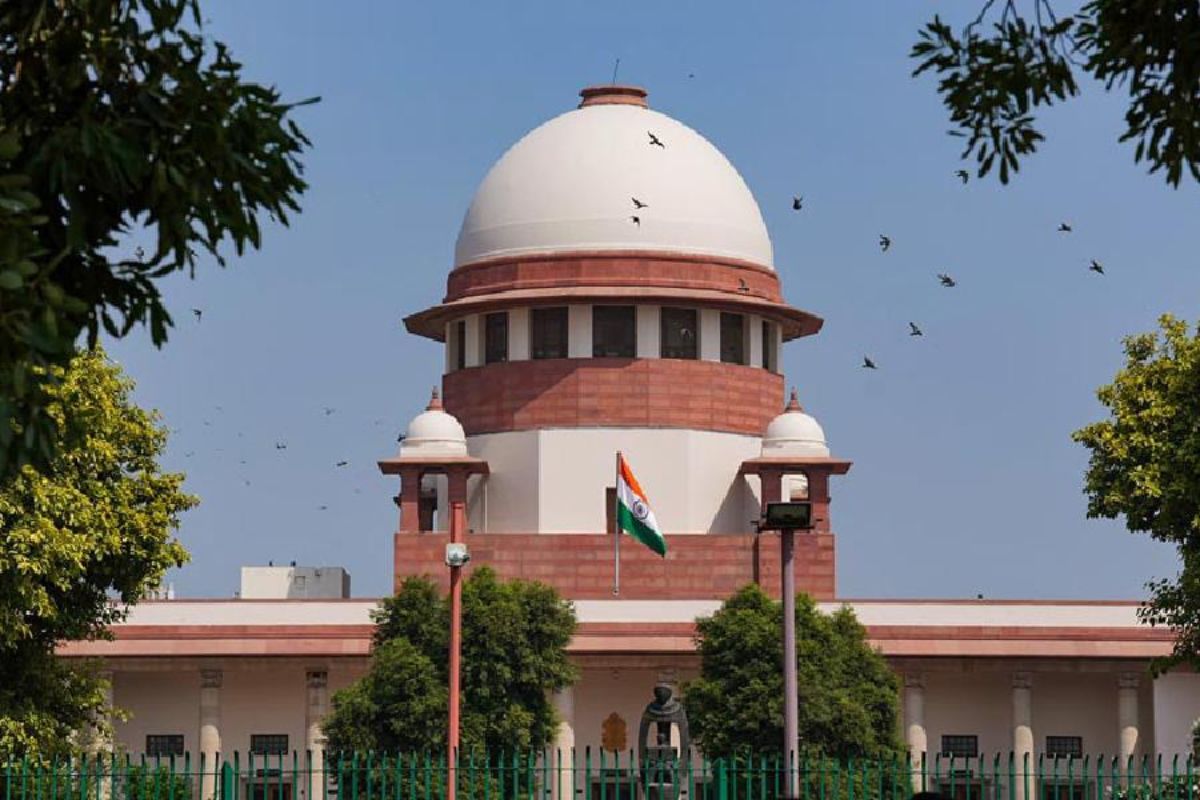The Supreme Court on Thursday posted for November 7 pleas challenging the constitutional validity of Section 6A of the Citizenship Act that was incorporated by an amendment in 1985 in pursuance to the Assam Accord for granting citizenship to the migrants from Bangladesh who had crossed over to India before March 25, 1971.
The Assam accord was signed between the central government, Assam government, All-Assam Students Union, and the All Assam Gana Sangram Parishad in New Delhi, on August 15, 1985. At that time, Rajiv Gandhi was India’s prime minister.
Advertisement
The challenge to the validity of Section 6A, which was to be heard on October 17, got rescheduled to November 7, after the solicitor general, Tushar Mehta, told a five-judge constitution bench comprising Chief Justice DY Chandrachud, Justice AS Bopanna, Justice MM Sundresh, Justice JB Pardiwala, and Justice Manoj Misra, that “yesterday we (the government) got to know that the entire week is a miscellaneous week.”
“That matter will go to November 7,” CJI Chandrachud said.
The constitution bench had earlier on September 20, directed the listing of petitions challenging the validity of Section 6A on October 17.
The top court in the week starting with October 16 till October 20, will hear only the miscellaneous matters. The top court will be on Dussehra holidays from October 21 (Saturday) to October 29. As a practice, the top court hears only the miscellaneous matters (fresh matters) in the week preceding and succeeding the long holidays.
In the last hearing, the court had said the cause title of the proceedings shall be, “In Re: Section 6A of the Citizenship Act, 1955.”
Earlier on January 10, a five-judge bench comprising Chief Justice DY Chandrachud, Justice MR Shah, Justice Krishna Murari (both since retired), Justice Hima Kohli, and Justice Pamidighantam Sri Narasimha had said the adjudication of the issue would be limited to “whether Section 6A of the Citizenship Act 1955 suffers from any constitution infirmity.”
The hearing on the validity of Section 6A of the Citizenship Act is rooted in a December 17, 2014, reference by a two-judge bench comprising Justice Ranjan Gogoi and Justice Rohinton Fali Nariman. Justice Ranjan Gogoi went on to become Chief Justice of India and has since retired and was nominated as Rajya Sabha member by the Modi government. Justice Nariman too has since retired.
The bench of Justice Gogoi and Justice Nariman had framed 13 questions for reference to the five-judge constitution bench that included whether Section 6A which was incorporated in pursuance to Assam accord violated Article 6, Article 14, Article 21, Article 29(1) Article 355, basic premise of the Constitution and the Citizenship Act and the rule of law.
One of the questions referred to the constitution bench included “whether Articles 10 and 11 of the Constitution of India permit the enactment of Section 6A of the Citizenship Act, in as much as Section 6A, in prescribing a cut-off date different from the cut-off date prescribed in Article 6, can do so without a ‘variation’ of Article 6 itself.”
Subsequently the same bench had, on July 21, 2015, referred to a constitution bench a question: “whether a child born in India to illegal migrants would be considered as a citizen of India or not?”
The question was referred to the constitution bench in the context of the citizenship status of children born to undocumented Bangladeshi immigrants in Assam.
The Section 3 of the Citizenship Act provides for citizenship by birth.
Assam Sanmilita Mahasangha, a Guwahati-based NGO, along with Assam Public Works, All Assam Ahom Association, and others had challenged Section 6A way back in 2012 contending that the Section 6A is discriminatory, arbitrary, and illegal so far as it provides for different cut-off dates for regularizing undocumented migrants who entered Assam and the rest of India.
The 1971 Bangladesh Liberation War, which led to the independence of Bangladesh from Pakistan, witnessed a massive influx of migrants to India. Even before the war had started, a large number of Bengalis, fleeing atrocities from Pakistani security forces, had entered India creating a severe refugee crisis in the border states, like Assam.
After the war was over and Bangladesh gained independence, many of these refugees stayed back in India and many more entered India as undocumented migrants. The status of these migrants has been a bone of contention between India and Bangladesh for decades.











